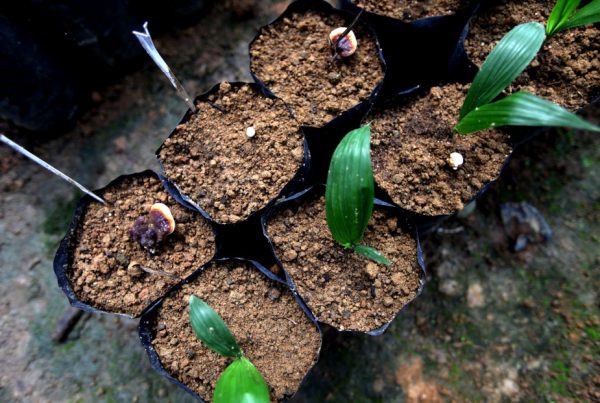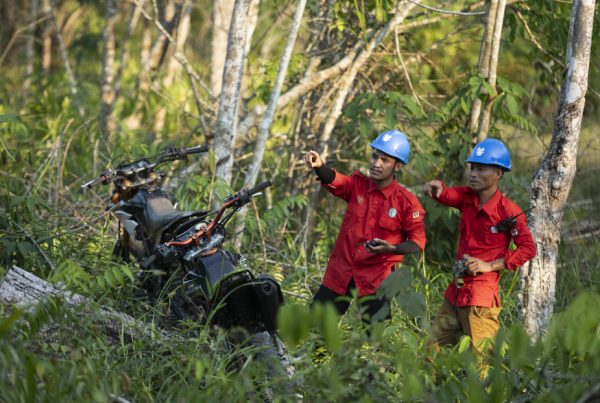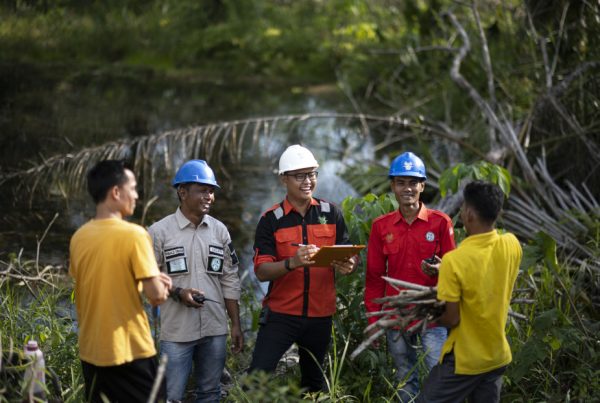Independent smallholder farmers are often trapped in a cycle: they need better training and equipment in order to increase their yields and thereby their income, but lack the means to pay for this investment.
It is for this reason that Asian Agri launched its Desa Sawit Lestari Program in 2015. The program identifies communities struggling with low yields, then works with farmers over a three-year period to turn their operations around.
The idea for Desa Sawit Lestari Program, which is part of Asian Agri’s Corporate Social Responsibility commitment, came in 2015 when falling palm oil prices hit farmers relying on outdated practices particularly hard.
Such farmers often rely on poor quality seeds and fertilizers, and have limited knowledge of sustainable farming practices and little access to modern equipment.
“Many of them do not understand how to manage plantations well, so we are here to educate them,” said Benjamin Hutagalung, Corporate Social Responsibility Coordinator for Asian Agri in Riau Province.
“We want the village communities to be independent so they do not continue to rely on others.”
The Desa Sawit Lestari Program was launched initially in two villages: Ukui Dua in Pelalawan Regency, and Petapahan in Kampar Regency.
The community sets aside land to be planted with Asian Agri’s Topaz seeds, which are developed by the company’s in-house R&D team and are renowned for their quality.
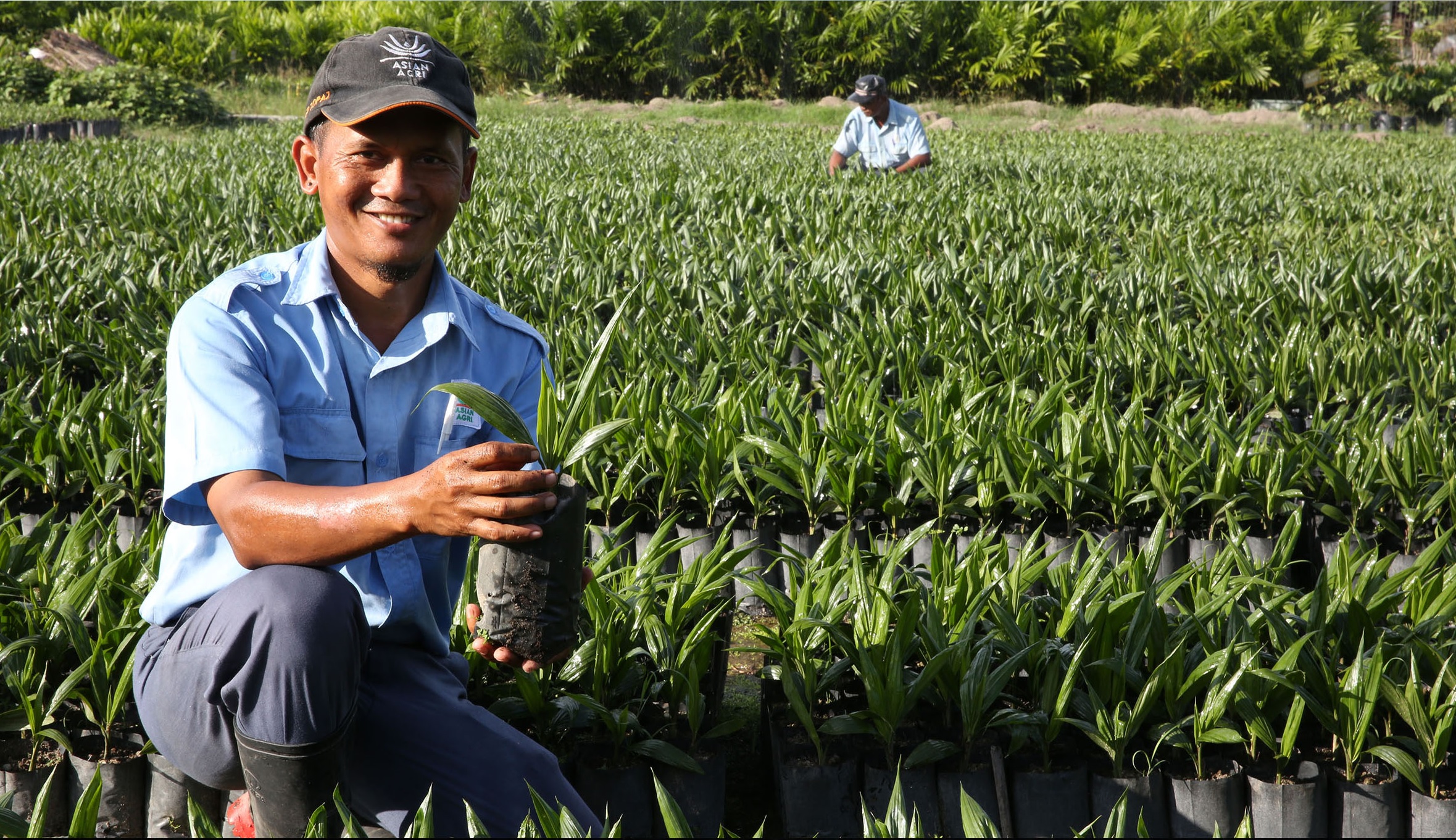
It is managed in a joint project between Asian Agri and the local community, so that farmers get hands-on experience of best practices, and access to quality fertilizers. At the end of three years, when the oil palms are mature, the land is fully handed over to the villagers.
“We provide sufficient knowledge to the villagers until they are eventually able to manage their plantations on their own,” Benjamin says.
“In addition, farmers are no longer lost about how to sell their produce, as the palm oil is immediately sold to Asian Agri directly after harvest,” he explains.
Under the program, the company is currently managing 11.6ha of community-owned plantations (8.9ha in Ukui Dua Village and 2.7ha in Petapahan Village). Although it has only been running for two years, the program is considered a success as it has resulted in increased palm oil sales for participating villagers.
“Their incomes have increased in line with their plantations’ productivity,” Benjamin says.
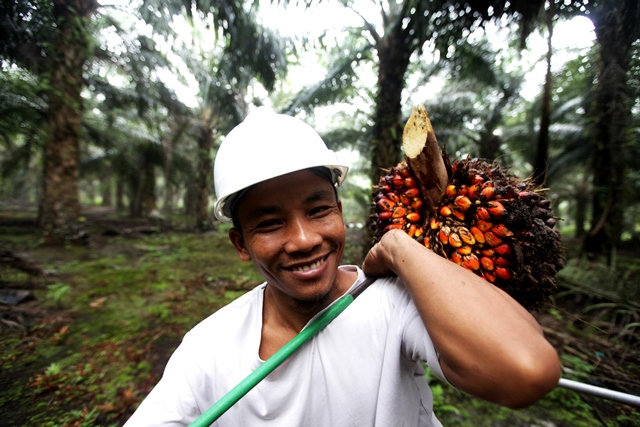
By turning villages into stakeholders in the sustainable palm oil production process in this way, the Desa Sawit Lestari Program aims to help improve the overall economies of villages.
All income gained through the sales of palm oil goes into a village treasury overseen by a cooperative village unit, and the money goes toward public facilities for the village. In this way Asian Agri is able to help improve the welfare of communities in its areas of operation.


